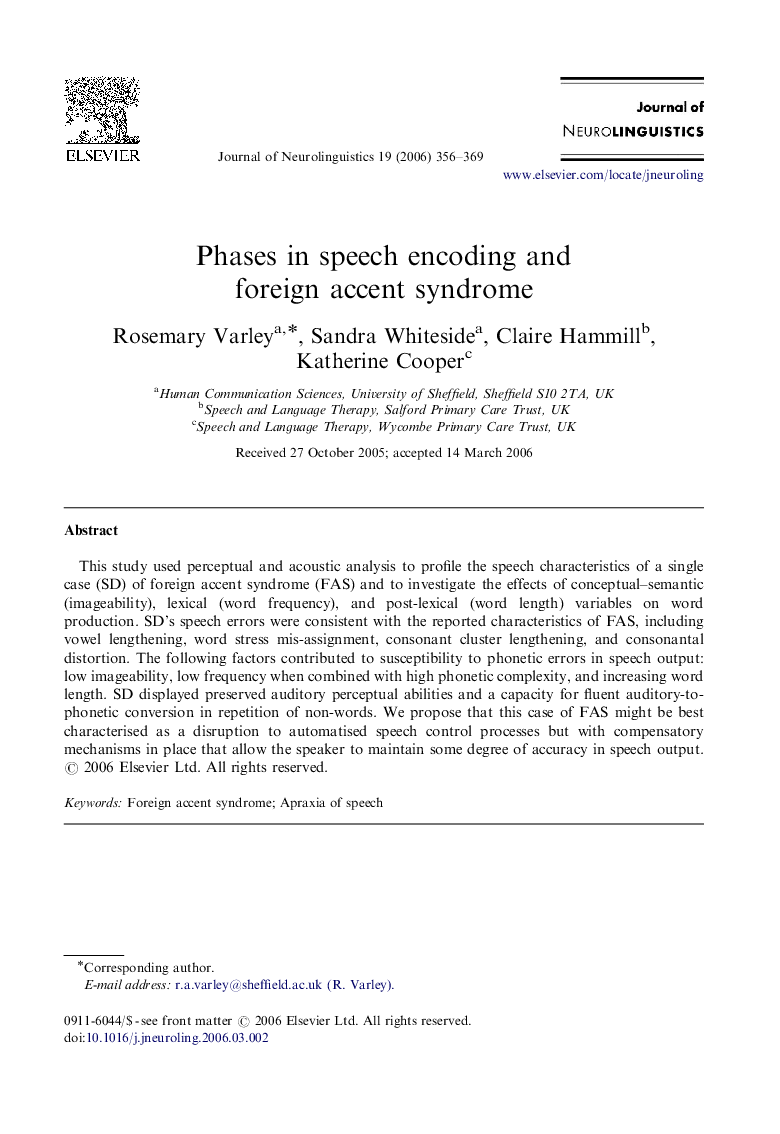| Article ID | Journal | Published Year | Pages | File Type |
|---|---|---|---|---|
| 912131 | Journal of Neurolinguistics | 2006 | 14 Pages |
This study used perceptual and acoustic analysis to profile the speech characteristics of a single case (SD) of foreign accent syndrome (FAS) and to investigate the effects of conceptual–semantic (imageability), lexical (word frequency), and post-lexical (word length) variables on word production. SD's speech errors were consistent with the reported characteristics of FAS, including vowel lengthening, word stress mis-assignment, consonant cluster lengthening, and consonantal distortion. The following factors contributed to susceptibility to phonetic errors in speech output: low imageability, low frequency when combined with high phonetic complexity, and increasing word length. SD displayed preserved auditory perceptual abilities and a capacity for fluent auditory-to-phonetic conversion in repetition of non-words. We propose that this case of FAS might be best characterised as a disruption to automatised speech control processes but with compensatory mechanisms in place that allow the speaker to maintain some degree of accuracy in speech output.
